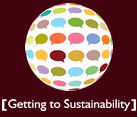CO2 Australia, a division of CO2 Group (ASX: COZ), has announced it has reached agreement and settlement with the Queensland State Government to acquire its 100% share of independently operated Ecofund Queensland Pty Ltd (“Ecofund”).
“The acquisition of Ecofund underscores our commitment to delivering a full range of environmental services and solutions to companies and organisations.
Read more
Blog
Reducing methane from dairy cows: it's all in the oil
By Richard Eckard, University of Melbourne The Carbon Farming Initiative is about to provide incentives for dairy farmers to reduce emissions from their milking cows. Emissions will be reduced by changing the cows' diet. The proposed new methodology alters the activity of the gut’s methane-producing microorganisms..Another link between CO2 and mass extinctions of species
By Andrew Glikson It’s has been know that massive increases in emission of CO2 from volcanoes, associated with the opening of the Atlantic Ocean in the end-Triassic Period, set off a shift in state of the climate which caused global mass extinction of species, eliminating about.
Excerpt from The Energy Collective (16 March 2013):
A variety of factors are coalescing to make 2013 a pivotal year in the growth of sustainability. Year after year, sustainability has gained ground as an increasing number of organizations are incorporating environmental and social concerns into their strategic planning.
The corporate community cannot ignore the overwhelming logic of.
Read more
Melbourne will be the venue for a conference of the world’s sustainable banks in March 2014, the Global Alliance of Banking on Values (GABV) announced today in Berlin.
Hosted by GABV member and Australia’s first customer-owned bank, bankmecu the conference will bring 22 of the world’s leading sustainable banks, from Asia, Africa, Latin America to North.
Read more
The City of Melbourne has been certified carbon neutral as part of its undertaking to become one of the world’s most sustainable cities.
Environment Portfolio Chair Councillor Arron Wood said certification by Low Carbon Australia against the National Carbon Offset Standard (NCOS) was a solid demonstration of the City of Melbourne’s commitment to a more sustainable.
Read more
A new guide by the Australian Government describes how to maximise the value of energy efficiency assessments, drawing on industry presentations to the Australian Government in relation to the federal Energy Efficiency Opportunities (EEO) program.
The EEO legislation came into effect on 1 July 2006. The initiative encourages large energy-using businesses to improve their energy efficiency.
Read more
By Donna Kelly in the Fifth Estate
5 March 2013 — In Australia 68 per cent more firms expect to be at “high levels of green” by 2015, building on a 56 per cent jump from 2009 to 2012, a new global survey from McGrath Hill found.
Architects, engineers, contractors, consultants and building firms.
Read more
Carbon offsets: saving emissions, but not saving the environment
By Michael Polonsky, Deakin University Many Australian consumers and businesses are working on ways to reduce their greenhouse gas emissions. For some, the carbon tax meets their needs: it’s designed to specifically motivate changes in behaviour by raising the costs associated with the production of pollution. But.
By Andrew Steer and Kirsty Jenkinson
Sustainability has become a business buzzword in recent years. For many, though, it’s still viewed as a philanthropic initiative disconnected from a company’s core goals, or even as a burden that competes with other strategic priorities. That must change.
Fortunately, more leaders are recognising sustainability risks. At the World Economic Forum.
Read more
